Psilocybin Dreams
Shrooms
Portuguese filmmaker Jorge Jácome crafts something fresh and innovative in the beautifully restrained Shrooms.
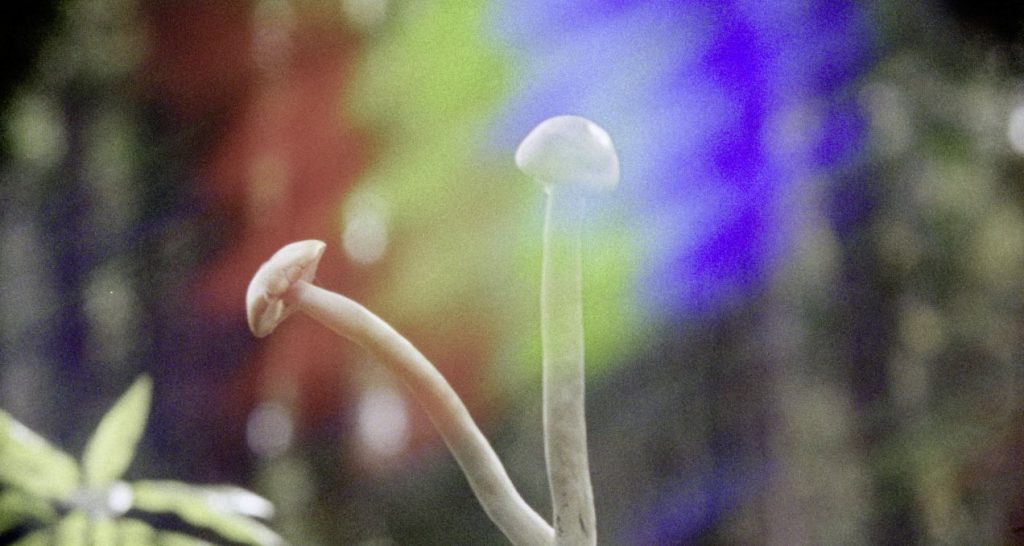
The use of psilocybin—the psychedelic substance that makes some mushrooms magic—predates recorded history. In a considerably shorter time frame, cinema has developed a rich vocabulary to represent its hallucinogenic effects. Portuguese filmmaker Jorge Jácome doesn’t shy away from any of these techniques and yet manages to craft something fresh and innovative in his beautifully restrained short, Shrooms.
Experimentally poised between documentary and fiction, Shrooms follows Dan, a softly-spoken young Venezuelan living in Lisbon. Dan collects magic mushrooms in a nearby forest and, using pigeons as carriers, distributes them to a network of needy locals, many of whom experience depressive symptoms.
Jácome’s starting point was a scientific study in which psilocybin was used therapeutically for the treatment of depression. But Shrooms sidesteps anything like an argument and offers scant information about its subject matter. Look elsewhere, then, if you want to learn about the clinical benefits of psychedelics or how they might slot into Portugal’s famously tolerant drug laws. Even when, in intermittent voice-over, Dan gives us some detail about psilocybin—“no one has ever overdosed on mushrooms, as far as I know”—the tone is always relaxed. Because Shrooms is a delicate film about delicate experiences, seeking to translate subjectivity at the expense of some of the more conventional pleasures of both fiction and documentary.
From the outset, the experience of ingesting psilocybin seems to hover at the edge of Jácome’s short. There’s a consistent red flicker in a corner of the screen, like an uneven exposure effect; black dots pockmark the image now and then, and there’s a grainy quality that’s immediately striking in the opening exterior shots. These are subtle, pleasing effects that are as gentle as Dan’s tone. They’re not as daring as in, say, the strobing excess and neon-bright fantasy of something like Gaspar Noé’s Enter the Void (2009) or the woozy road-tripping of Sebastián Silva’s Crystal Fairy and the Magical Cactus (2013). In fact, many of these techniques date at least as far back as Easy Rider (1969)—see the cemetery acid trip scene, for instance.
I name that film in particular because there seems to be a nostalgic longing for the late 1960s and early 1970s coursing through Shrooms, both thematically and technically. Is this pastiche, homage? A backwards glance at countercultural dreams, or inspiration for an alternative future? There’s no obvious answer, not least because whereas a film like ‘Easy Rider’ boils with utopian yearning, ‘Shrooms’ at its strongest musters a mere simmer.
The director’s previous work, in any case, takes aim at similar targets. His short Flores (2017) also blends documentary and fiction to generate psychedelic effects: a mysterious plague in the Azores has supercharged the local hydrangeas, producing a vivid purple dystopia from which might blossom a brighter tomorrow. An experimental feature, Super Natural (2022), pushes these sensorial games even further, straining towards a new vocabulary to represent experience.
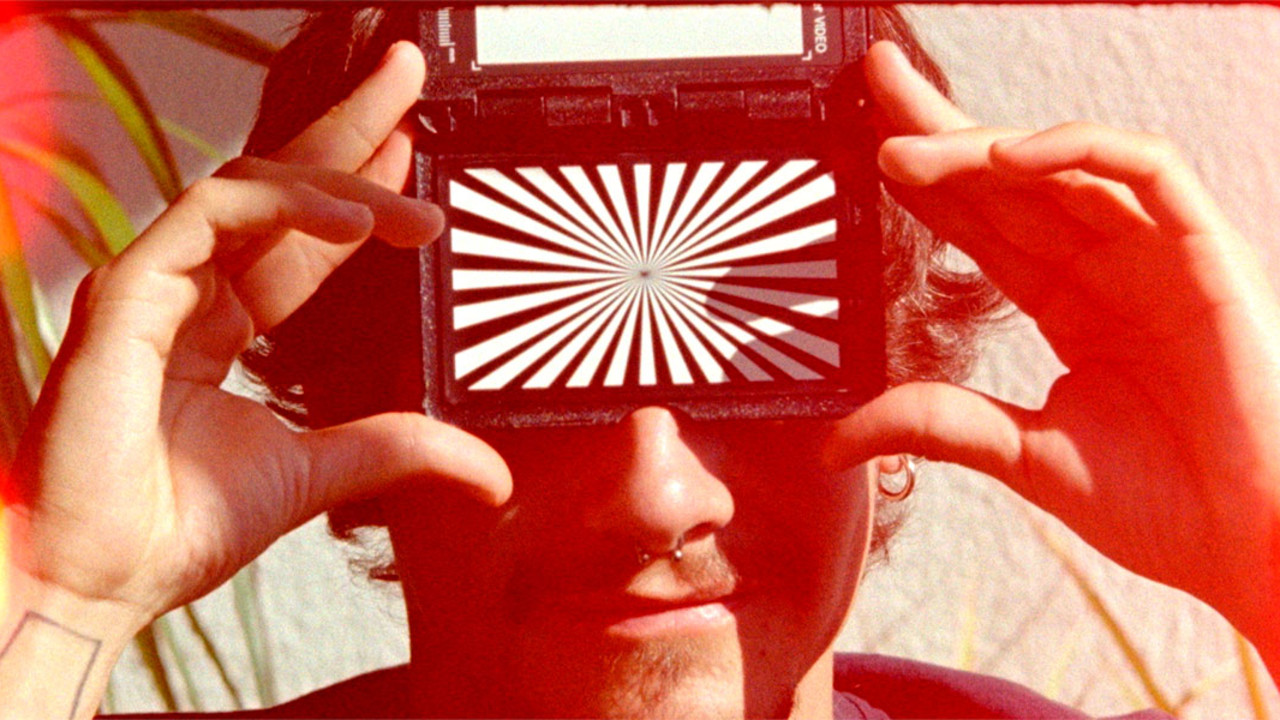
Shrooms
Shrooms does a little less straining and relies a little more on the well-established trippy vocabulary I mentioned at the outset. Lens flare dazzles and jump cuts abound. There’s swelling music and disorientating close-ups, too. But Jácome uses them to conjure some superb effects. In the process, he quietly updates these well-worn techniques for a new era—this is one of Shrooms’s sharpest achievements: like the doubled images in one of the short’s psychedelic scenes, it’s a Janus-faced gesture that helps us see in two directions at once, as far back as the 1960s and towards a new future.
More than just two directions, in fact. “I believe everything is connected,” says Jácome’s Dan. And Shrooms audaciously shows us how. Through creative juxtapositions, Jácome relentlessly produces unexpected associations: we cut rapidly back and forth between a man with his eyes closed and a flock of birds in flight; their chirping song is like a flitting flute, and the beating wind is the sound of a pounding heart; meanwhile, sunlight filtering through a doorway casts a perfect shadow theatre on an interior wall, where unseen hands produce shadow puppets of—you guessed it—flying birds.
This game of connections could get tired fast, like listening to an acquaintance drone on about a trip. But the short’s masterful editing and deeply immersive sound design keep us focused and absorbed. Long cuts and steady shots give way to brief wheeling cants and momentary handheld judders, which elevate those lingering, oneiric shots and even set up a few comical moments, as when someone slowly dances the worm across a polished floor.
All of which lends an exciting sense of rhythm to those moments of fleeting beauty. So that in the end, they build like dramatic tension until they finally burst into a climactic scene that is as thrilling as it is simple: the sun, through clever camera movement, is made to dance wildly against a crepuscular sky, interspersed with cuts of magic mushrooms, twisting and turning in a man’s hand. It’s a spectacular place to reach at the end of a brief but satisfying journey.
Dziga Vertov famously called for a documentary to show “life as it is”. Shrooms ultimately shows us something like “life as it could be,” if only we were paying attention. Jácome pays attention for us and, in the process, gently refreshes our vision of things. “I believe everything is connected,” said Dan. We’re left feeling that he was right.

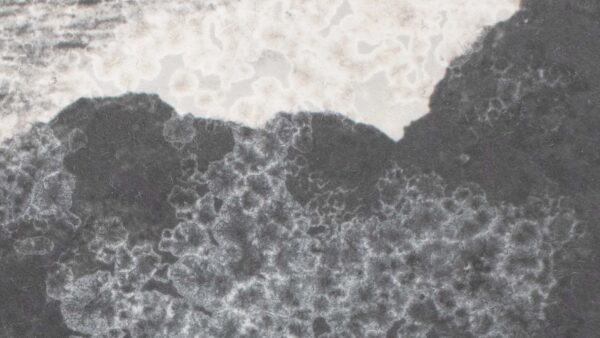
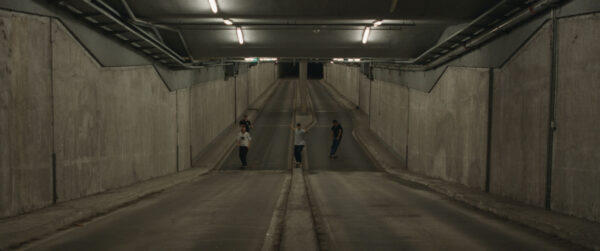
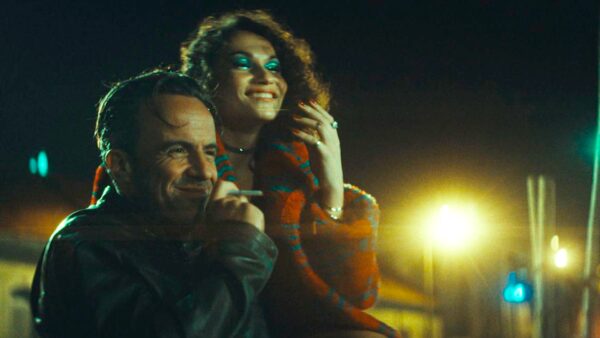
There are no comments yet, be the first!